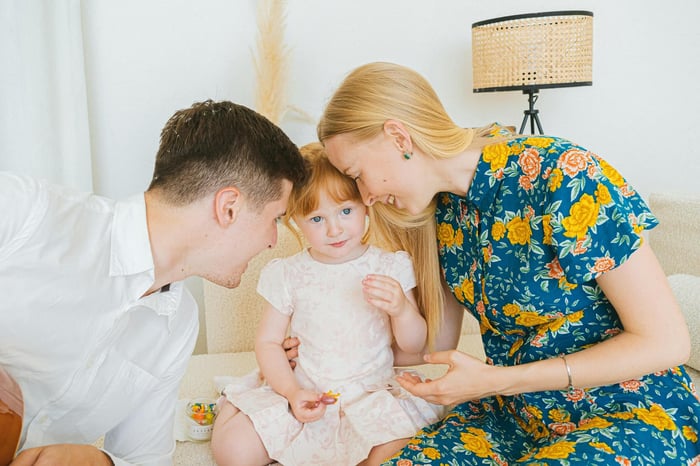Parenting is one of the most rewarding yet challenging journeys we embark on. It's filled with joy, love, and moments that take our breath away. But it's also filled with exhaustion, frustration, and sometimes, resentment. One common issue that often surfaces in therapy is the resentment that builds up when one partner frequently escapes the chaos at home, often to the golf course, leaving the other partner to juggle the demands of parenting alone.
Ah, golf. The sport that transforms your partner into an elusive shadow, flitting off into the misty morning before the kids even think about waking up. As therapists, we've seen it all—the tears, the frustration, the deep, simmering resentment that bubbles up every time you hear about a tee-time.
It's Saturday morning. You’re already exhausted, knee-deep in diapers, the baby is screaming, and the walls feel like they’re closing in. Meanwhile, your partner is off perfecting their swing, blissfully unaware of the chaos they've left behind. Let’s be honest: It’s not that you begrudge them their leisure time. It's the feeling of injustice and of being left behind, dealing with the daily grind alone while they enjoy 4+ hours of sanity and fresh air. It's about feeling unseen and unsupported.
Golf has become your partner's second love. Early mornings, weekend-long tournaments, and endless discussions about putters and birdies. You've tried to be supportive, really. You've feigned interest in their latest golf anecdote, even when you were secretly plotting ways to accidentally "misplace" their clubs. You've found yourself feeling isolated, wishing for the same freedom they have, yet knowing the kids need you more. This imbalance can deepen the sense of resentment and loneliness.
In therapy, we often talk about keeping score in relationships. Golf just gives it a whole new meaning. Your partner's scorecard might be filled with birdies and eagles, while yours is filled with sleepless nights and tantrums (mostly the kids', sometimes yours). You start to feel like you're living parallel lives. It's a burden that can feel heavy and unending. While they're out on the course, you're navigating the obstacle course of parenthood. The imbalance is glaring, and the resentment grows as you carry the weight of parenting alone, again.
What Can you Do?
Okay, so maybe passive-aggressively hiding their golf shoes isn't the healthiest way to deal with things. Instead, let's talk about communication. It's time to have that awkward but necessary conversation about balance and fairness. Explain how you feel. Use "I" statements, like, "I feel overwhelmed when I'm left alone with the kids for hours while you're at golf." It's not about guilting them out of their hobby; it's about finding a way to share the load. Sharing your vulnerability can be challenging, but it's essential for building understanding and support. It's about asking for what you need and being open to finding a solution together.
One radical idea: Join them. Yes, it sounds absurd, but hear me out. Golf might not be your cup of tea (or rather, your bucket of balls), but spending time together on the course could bridge that gap. If you’re really not feeling it, consider finding ways to spend time together that both of you enjoy. Find another activity that allows you to connect and spend quality time together. It's about finding balance and ensuring both partners feel valued and supported.
Reflect on what you do for self-care. As a therapist, when golf comes up as an area of tension in a relationship, it is often because the non-golfing partner feels they never get the same amount of “me time” as the golfing partner. Why is this? Is it because your partner doesn’t support this? Or are you resisting taking the time you need for yourself? Are you pursuing your interests and hobbies in a way that feels good to you? If not, why not? Do you need to start scheduling in some time for yourself?
Offer a Mulligan: In golf, a mulligan is a do-over—a chance to correct a bad shot. In relationships, it's about forgiveness and compromise. Recognize that neither of you is perfect. Parenting is hard, and so is maintaining a relationship amidst the chaos.
Offering each other a mulligan means forgiving past frustrations and working together to create a more balanced and supportive partnership. It's about finding that sweet spot where both of you feel supported and valued. So, offer each other a mulligan. Maybe your partner cuts down on golf outings, and you get some well-deserved "me time." It's about finding that sweet spot where both of you feel supported and valued.
Ultimately, the goal is to find a balance that works for both of you. Resentment can fester if left unchecked, but with open communication and a willingness to compromise, you can turn things around. Maybe one day you'll find yourself enjoying a round of golf, or perhaps you'll relish the quiet time when they're out on the course, knowing that when they return, they'll take the kids and give you the break you need. If you’re not getting a break in return, this is likely the relationship area that needs to be addressed.
In the end, the key to overcoming resentment is understanding, patience, and a willingness to communicate openly. If you’re struggling with an unequal division of responsibilities, a lack of time for yourself, or are feeling resentful (about golf or anything else!), talking to a therapist who specializes in working with parents can be helpful! Click here to learn more.
Our workbook and journalling program, From Resentment to Resilience, will help you recognize postpartum resentment and work through the common feelings that come with it. Rediscover your resilience and take the time to invest back into yourself.

.png)


